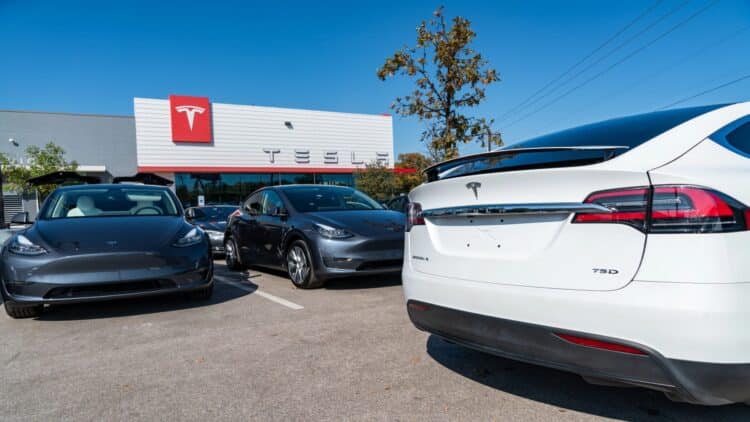The market share of European battery electric vehicles (EU BEV) was unchanged at 15.8% up to August 2025 and has been growing steadily, although not enough to meet transition targets to achieve climate targets. According to International Council on Clean Transportation and ACEA statistics, hybrid-electric cars remain at the top of consumer choice with 34.7% of the market, whereas the share of traditional petrol and diesel vehicles dropped significantly.
Battery electric cars ensure stability in the market
ICCT indicated the average proportion of battery electric vehicles (BEVs) of overall new registrations in Europe was 19 percent in August 2025, compared to 17 percent in July. The BMW pool with a 29% share was ahead of the Mercedes- Volvo -Polestar pool (26), Hyundai (22), Kia (21), and Volkswagen (20) pools. Tesla pool (16%), SAIC (13%), the Renault pool (12%), and Nissan (8%) were all below the European one.
The BEV share showed a stable value of 17 years-to-date (YTD) 2025, which is an increment of 4 percentage points over the time frame of 2024. There were numerous manufacturing pools with a substantial rise in BEV shares in YTD 2025 compared to YTD 2024. Both Kia (20%) and Volkswagen (18%) increased their BEV shares by 8 percentage points, and BEV shares of the Hyundai (18%) and BMW (25%) pools had gains of 7 and 4 percentage points, respectively.
Big markets accelerate the registration of electric vehicles
ACEA estimates that one million 1,132,603 new battery-electric cars were registered in the first eight months of 2025, taking 15.8% of the EU market. Three out of four biggest EU markets (taking 62 percent of battery-electric car registrations) had improvements, with Germany ( +39.2 percent), Belgium ( +14.4 percent), and the Netherlands ( +5.1 percent). This was unlike in France, where it declined 2% although the August 2025 gain was positive at 29.3%.
Hybrid electric cars are the European consumers’ favorite choice
Battery-electric cars had a 15.8% market share in the EU, an improvement on the low base of 12.6% in August 2024 YTD. The number of hybrid-electric cars registered is on the rise, and 34.7 percent of the market is controlled by it; it is still the most popular among European buyers. In the meantime, the market share of petrol and diesel cars decreased to 37.5 percent (in 2024, it was at 47.6%).
The 2025 YTD numbers also indicated that new EU hybrid-electric car registrations increased by 2,485,069 units due to an increase in the four largest markets: France ( +30.5 percent), Spain ( +29.3 percent), Germany ( +10.1 percent), and Italy ( +9.4 percent). The hybrid-electric models represent 34.7 percent of all EU markets. Plug-in hybrid electric car registrations are also ever-increasing to 631,783 units during the same time. This was propelled by growth in volume of major markets like Spain ( +99.9) and Germany ( +61.2). This has seen plug-in-hybrid electric cars comprising 8.8% of EU car registrations, compared with 6.9%.
Manufacturer compliance challenges persist amid CO2 targets
The average pool of manufacturers had carbon dioxide (CO2) emissions of 102g CO2/km in the first eight months of 2025. Manufacturing pools are thereby still 8 g CO2/km below the average 20252027 target of 93g CO2/km. The market share of the Tesla and Volkswagen pools, with 58 percent, decreased by 1g CO2/km in relation to the comparison of the previous month.
The BMW pool is already at its present target (20252027), and Nissan (30 g CO2/km above) is the most distant. Considering car brands with market shares of 1% or more, excluding Tesla, Volvo had the highest over-compliance (28 g CO2/km below its 20252027 target), then Cupra (15 g CO2/km below its target) and Mini (13 g CO2/km below its target). The target gaps of Nissan, Mazda, and SEAT are the highest at the moment, 30, 26, and 25 g CO2/km, respectively.
The European transition to electric vehicles is at a critical juncture, with the market share of BEVs at a point that does not allow the country to meet the target rates of acceleration on climate. Compared to a shrinking traditional powertrain, hybrid cars are becoming more acceptable to consumers, but the 15.8% share of BEV shows that manufacturers need to put more effort into compliance with regulations.


